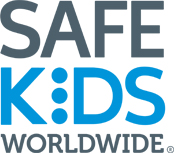New Safe Kids Worldwide Research Uncovers Unsafe Practices and Shows Parents How to Protect Kids
Washington, D.C. – With almost one call every minute to poison control centers and enough kids to fill about four school buses a day[1] arriving to emergency rooms due to accidental medicine poisonings, it is more important than ever for parents to store medicine safely. However, new research reveals that while most parents know what they should do to protect kids from accidental medicine poisoning, that knowledge isn’t always turning into action.
A new report released today by Safe Kids Worldwide, “Safe Medicine Storage: A Look at the Disconnect Between Parent Knowledge and Behavior,” explores the gap between what parents know they should do to keep kids safe around medicine and what they actually do. A new nationwide survey of 2,000 parents revealed that while the clear majority of parents agree that it’s important to store all medicine out of sight and up high after every use, less than half of the survey respondents reported doing so.
Read the report and infographic
“We know parents are busy,” said Torine Creppy, Interim President at Safe Kids Worldwide. “They have a million things to do every day, and they are always on the lookout for what might be dangerous to their kids. But even with the temptation to put convenience ahead of caution, it’s important to store medicine safely every time. It only takes one mistake for a tragedy to occur.”
Can I Keep My Medicine Handy?
With many parents taking medicine, vitamins or supplements daily, it’s tempting to keep medicine out where it’s easily accessible. Four in 10 parents agreed that it’s okay to keep everyday medicine out where children can see it, and almost half of parents believe it’s okay to keep medicine visible and handy between doses when a child is sick. However, choosing convenience over safety can lead to tragedy. In 3 of 5 accidental medicine poisonings involving young children, the medicine wasn’t in its usual safe storage location. Handy for you can mean it’s handy for kids, so parents should be sure to keep all medicine out of sight and reach after every use. Safe reminders like cell phone or watch alarms, notes or medicine schedules can help create good habits.
Where Can I Safely Store My Medicine?
When asked where medicine needs to be kept in order for it to be safe, nearly 3 in 5 parents said that it simply needs to be stored out of reach of children. Similarly, about half of parents believe that medicine just needs to be out of sight to keep it from prying eyes. However, research shows that in about half of all poisoning cases, the child climbed up on a chair, toy or other device to reach the medicine. To be completely safe, medicine should be stored out of reach (at or above counter height) and out of sight (in a high cabinet or drawer) at all times.
Many parents are also storing medicine outside its original, child-resistant packaging. 9 in 10 parents say they know medicine should be kept in its original containers, but 1 in 3 reported that they or someone in their home uses daily pill organizers or baggies to manage medicine. Pill organizers aren’t necessarily unsafe, but they also should be kept out of sight and reach after every use.
Does My Kid Know Better?
No matter how well-behaved a toddler is, young children are very curious, causing them to explore and get into all sorts of things, including medicine. One- and 2-year-old children are proven to be most at risk for medicine poisoning, so practicing safe storage from the time your baby is born will help make it a safe habit by the time they begin crawling. 1 in 3 parents strongly agree that simply talking to their kids will prevent them from getting into medicine, but young children can’t always tell what’s safe and what’s unsafe. Just like parents wouldn’t rely on only telling toddlers to stay away from pools to protect them from drowning, just talking to your children isn’t enough to protect them from medicine poisoning.
What Families Can Do to Protect Kids
- Store medicine up and away and out of sight and reach every time.
- Keep medicine in its original child-resistant packaging.
- Practice safe storage of medicine as soon as your first child is born.
- Put the Poison Help number – 1-800-222-1222 – into your phone and post it visibly at home.
- Instead of keeping your medicine handy, use safe reminder tools like cell phone alarms or medication schedules.
For more medicine safety tips, visit SafeKids.org
National Poison Prevention Week is March 19 – 25, 2017.
Download the report and infographic created with support from Johnson & Johnson Consumer, Inc.
[1] Roughly 60,000 children visit emergency rooms every year due to accidental medicine poisonings.
